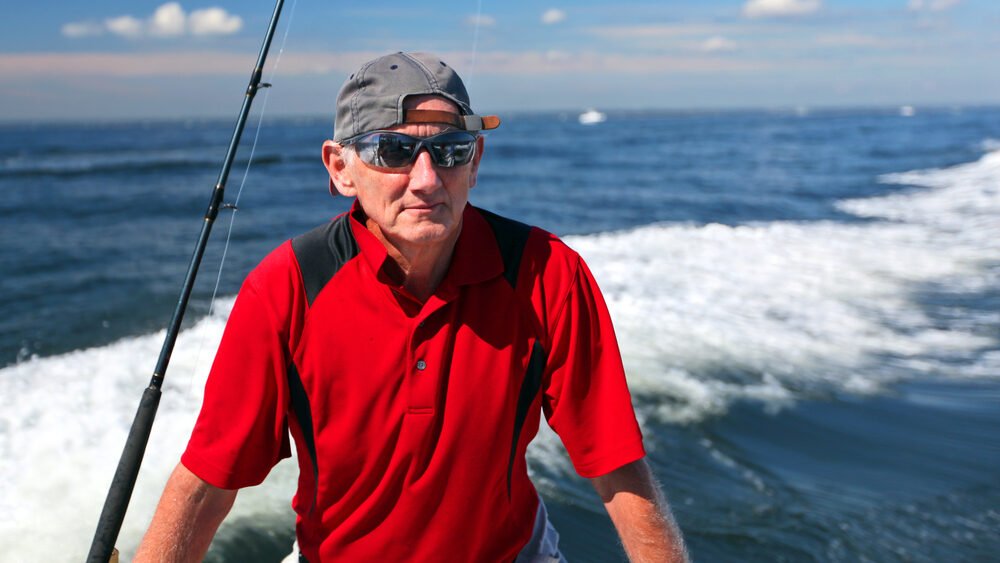10 Things Tuna Fisherman Do in the Off Season
What do Tuna Fishermen Do in the Off Season? The lives of tuna fishermen are fascinating. These productive men and women spend whole seasons at sea, exposing themselves to dangerous conditions and facing many challenges in pursuit of the “Tunny.”
But what the heck are these people doing when they’re not tuna fishing? Fishing is their life; indeed, they must continue with their lives in the off-season and be doing something.
So I set out on a quest to learn more about the untold lives of tuna fishermen in the off-season and discover the truth!
Eventually, I tracked down a few fishermen on my latest trip to North Carolina and met with many interesting people. To name a few:
- Jack is a seasoned veteran with over 20 years of experience on the water.
- Maria is a young up-and-comer who’s already making waves in the industry with her newly self-financed boat.
- Jorge is an older fisherman wizard who’s seen it all in his long career.
What Are Tuna Fishermen Doing in the Off-Season? Here are 10 Things
#1 Maintenance and repairs

As I met Jack down on the docks, he told me about the importance of maintaining and repairing his boats and equipment. “It’s a constant battle out there on the water,” he explained. “You’ve got to be ready for anything, which means keeping your gear in top shape.”
To do this, Jack spends a significant portion of his off-season working on repairs and maintenance, from replacing damaged nets and lines to fixing broken engines and hulls to cleaning and organizing the boat. It’s hard work, but Jack says it’s essential to prepare for the challenges of the next fishing season. Being quite the handyman, he’s able to fix most things himself.
#2 Other fishing

In addition to repairs, Jack also engages in other forms of fishing during the off-season. When tuna is not in season, he switches to targeting different fish species, switching up the gear and techniques, which keeps him busy and provides a valuable source of income during the slower months.
Jack is one of many people who do this. Other fishermen may work on boats in different regions or travel across the country for extra income.
#3 Relaxation

Many fishermen may use the off-season to take a break from the job’s demands and spend time with family and friends.
Despite the demands of his job, Jack also makes sure to carve out time for rest.
Between repairs and fishing trips, he often takes shorter vacations during the off-season to visit friends and family, which he doesn’t have the opportunity to spend time with during the high season.
His occupation is demanding and stressful at times, but Jack knows how to make the most of his time off and get ready for the next season.
#4 Seasonal work

Maria, a young and ambitious fisherwoman, told me about her approach to the off-season.
“I’m always looking for ways to maximize my earnings and invest in my business to grow it. That means looking for job opportunities or trying to improve my skills and knowledge,” she explained.
One way Maria does this is by alternating between different types of seasonal work in the off-season, including anything from working on farms or in construction to taking on odd jobs or freelance work.
By diversifying her income streams, Maria can make the most of her time off and maximize her earnings. She recently invested all her savings in a fishing boat and is one of the state’s youngest fishing boat owners.
#5 Training and professional development

In addition to her work, Maria dedicates time to personal and professional development.
She spends time during the off-season training and improving her skills, whether it’s through physical fitness, self-improvement, or learning new fishing techniques and technologies.
Self-improvement helps her stay at the top of her game and prepare for the challenges of the next fishing season.
#6 Marketing and business development
Some fishermen work on market research and business development. It may include building relationships with buyers, identifying new markets, or finding ways to maximize their revenue and profits.
Maria said she is always on the lookout for new business opportunities. By focusing on growth and innovation, she believes she is positioning herself for success in the competitive world of tuna fishing, but it’s all worth it.
She says: “I love the fishing industry, and I’m constantly asking myself, ‘how can I improve’ or ‘what is the one thing I can do today to win?’. The book The One Thing by Gary Keller inspired me, and I try to keep it simple. This lifestyle is a challenge, but I enjoy the work, and it provides for my family. I’ve always dreamed of being an adventurer; going out on the sea and building a business is fun. I wouldn’t have it any other way.”
#7 Community involvement

When I met Captain Jorge, he first reminded me of Gandalf. A wise old wizard of the fishing industry. With decades of experience on the water, he told me about his approach to the off-season.
“The off-season used to feel strange. You’re out on the sea all day for months, 100% focused, and forget about everything else, and suddenly you have months of free time. Some people struggle to find things to do, and it took me years to figure out what was most important to me. These days I focus on three things: community, travel, and health.”
For Jorge, community involvement is a way to give back to the places he calls home. He volunteers his time, helps out with local events, and supports causes that he believes in.
“It’s important to be a part of something bigger than myself. Helping your community is a way to stay connected to the people and places I care about,” he explained.
#8 Travel

Travel is another passion for Jorge; he loves exploring new places and learning about different cultures and ways of life.
“It helps me see things differently and keeps me curious and open-minded. I’ve been to Peru and hiked to Machu Picchu, and another year I went to Fiji. Next year I’m planning to visit an old friend who lives in Japan, and I’m excited to try their seafood which is quite different than here. The off-season is a great opportunity for these travel experiences that most people never get,” he said.
#9 Physical fitness and health

Physical fitness and health are also crucial to Jorge. He uses the off-season to focus on staying active and in shape, whether it’s through exercise, sports, or outdoor recreation.
“It’s tough work being out on the water all day, so it’s important to be in good shape. Exercise helps me clear my head and relax,” he explained.
He lifts weights in his home gym, practices basic calisthenics, and enjoys taking short hikes. “I love hiking in the off-season, especially in forests and mountains, as they are completely different environments than the ocean,” he said. “It’s all about finding the right balance, so I’m energized and excited for the next season.”
#10 Continuing education

For some tuna fishermen, the off-season is an opportunity to pursue further education and training. Many fishermen started fishing to earn money quickly during the high fishing season and then used those earnings to finance their education.
Sometimes their goal is to eventually transition into another field or career, using their fishing experience as a stepping stone.
This approach can be especially appealing to younger people. Fishing may be a temporary job rather than a lifelong career.
Using their time on the water to earn money, they can focus on their studies during the off-season and work towards a longer-term goal.
While they may enjoy the challenges and rewards of the job, their ultimate aim is to use their education and training to pursue a different path.
Conclusion
In conclusion, fishermen have a variety of activities they engage in during the off-season, depending on their individual goals and priorities. Some may focus on maintenance and repairs, while others may engage in other forms of fishing or seasonal work. Many fishermen also use the opportunity to rest and relax, spend time with family and friends, or pursue training and professional development.
Overall, the off-season is a time for fishermen to recharge and prepare for the challenges of the next fishing season. Working on their boats, repairing gear, building their businesses, or focusing on personal and professional growth, these hardworking men and women always strive to be their best and make the most of their time on and off the water.

